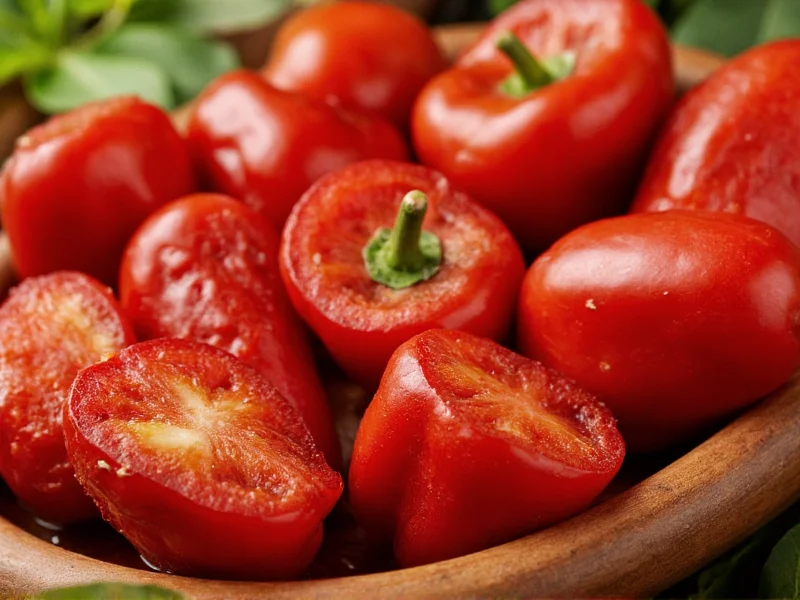"Spicy" primarily refers to food containing spices that create a hot, pungent sensation, typically from chili peppers. In modern slang, it describes something exciting, provocative, or controversial. The term's meaning varies significantly between culinary contexts (literal heat) and internet culture (figurative intensity).
Understanding what "spicy" means requires examining both its traditional culinary definition and its evolving digital slang usage. This versatile term has expanded far beyond its original food-related context to become a staple in everyday conversation and online discourse.
The Culinary Definition of Spicy
At its core, "spicy" describes food with noticeable heat from capsaicin-containing ingredients like chili peppers. This sensation activates TRPV1 receptors in your mouth, creating that familiar burning feeling. Contrary to common confusion, "spicy" and "hot" are often used interchangeably in food contexts, though "hot" can also refer to temperature.
When exploring what does spicy mean in food, consider these key elements:
- Heat level measured on the Scoville scale
- Different pepper varieties creating distinct flavor profiles
- Cultural variations in spice tolerance and preferences
- Chemical compounds responsible for the sensation
Spicy in Internet Slang and Modern Usage
Over the past decade, "spicy" has evolved into popular internet slang. When someone says a comment is "spicy," they mean it's bold, provocative, or slightly controversial. This metaphorical usage represents a significant shift from its literal meaning.
Understanding the spicy meaning in slang requires recognizing these common applications:
| Context | Example Usage | Implied Meaning |
|---|---|---|
| Social media comments | "That take is spicy af" | Provocative or controversial opinion |
| Entertainment | "This episode got spicy" | Unexpected drama or intensity |
| Everyday conversation | "Don't get too spicy with your boss" | Avoid being overly bold or confrontational |
Etymology and Historical Development
The word "spicy" originates from the Old French "espice" (meaning spice), which came from the Latin "species" (referring to valuable commodities). Originally describing food seasoned with spices, its meaning expanded as culinary traditions evolved globally.
By the 20th century, "spicy" began acquiring metaphorical meanings related to excitement or intensity. However, the dramatic shift to its current internet slang usage accelerated around 2016-2018, particularly on platforms like Twitter and TikTok where linguistic innovation happens rapidly.
How to Use Spicy Correctly in Different Contexts
Mastering the how to use spicy in a sentence requires understanding context:
Culinary Context
"The Thai curry was incredibly spicy, leaving my mouth tingling for hours." This usage refers specifically to the heat level from chili peppers.
Slang Context
"Her response to the interview question was spicy—everyone's still talking about it." Here, "spicy" means bold, provocative, or boundary-pushing.
Avoid common mistakes like using "spicy" to describe temperature ("This coffee is spicy" would confuse native speakers). Understanding the spicy vs hot meaning distinction prevents these errors.
Regional Variations in Usage
Spice tolerance and terminology vary globally. In some cultures, "spicy" might refer to complex flavor profiles beyond just heat. For example:
- Indian cuisine: "spicy" often encompasses both heat and complex spice blends
- Mexican cuisine: Distinction between "picante" (spicy/hot) and "condimentado" (well-seasoned)
- British English: "spicy" sometimes refers to aromatic spices without significant heat
Common Misunderstandings About Spicy
Many non-native speakers confuse "spicy" with similar terms. Remember:
- "Spicy" ≠ "sour" (lemon flavor) or "bitter" (dark chocolate flavor)
- Not all spices create heat (cinnamon is a spice but not hot)
- In slang usage, "spicy" suggests positive provocation, not actual danger
When researching the spicy definition urban dictionary, note that slang evolves quickly. What was considered "spicy" in 2020 might now seem tame as language norms shift.
What Makes Food Spicy: The Science Explained
The heat in spicy food comes primarily from capsaicin in chili peppers. This compound binds to pain receptors, triggering a burning sensation. Different peppers contain varying capsaicin levels:
- Bell peppers: 0 Scoville Heat Units (SHU)
- Jalapeños: 2,500-8,000 SHU
- Habaneros: 100,000-350,000 SHU
- Carolina Reaper: 1,400,000-2,200,000 SHU
Understanding the science behind what makes food spicy helps explain why some people enjoy intense heat while others avoid it—their pain receptor sensitivity varies genetically.











 浙公网安备
33010002000092号
浙公网安备
33010002000092号 浙B2-20120091-4
浙B2-20120091-4